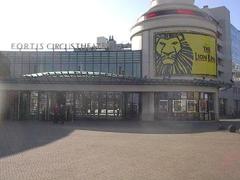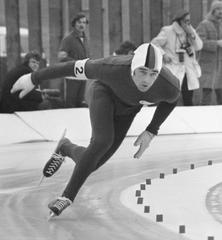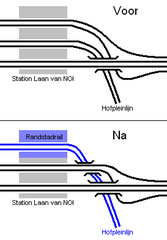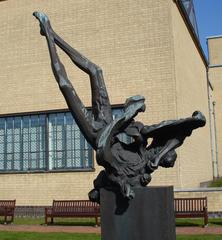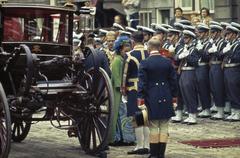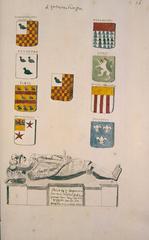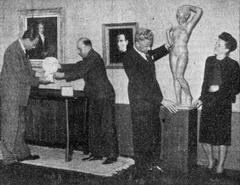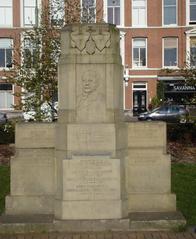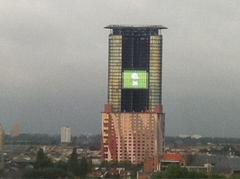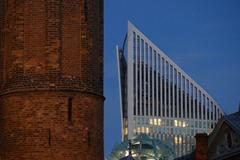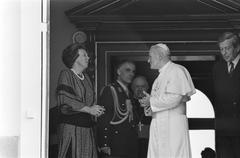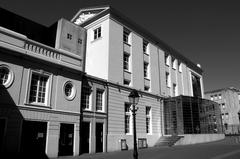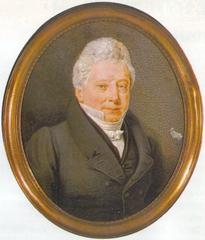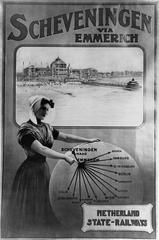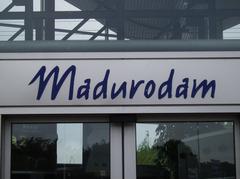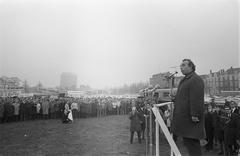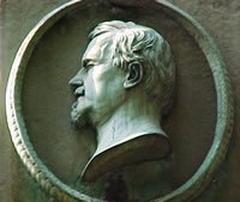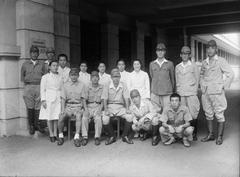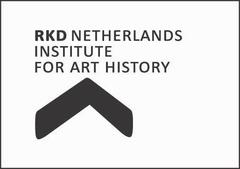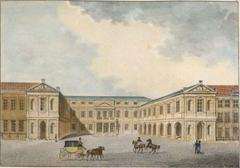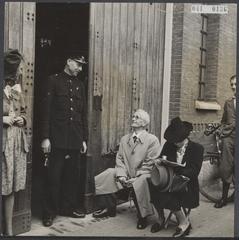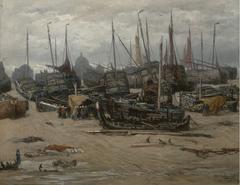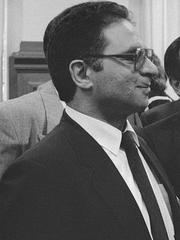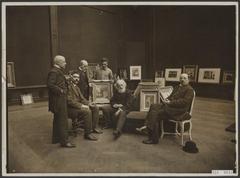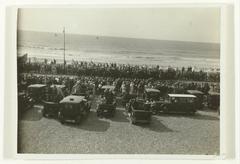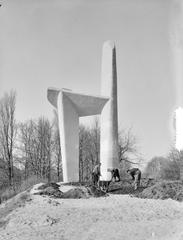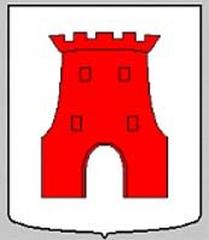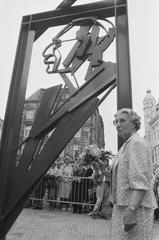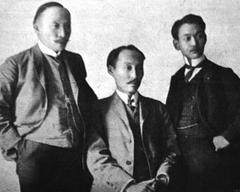
United Nations Detention Unit The Hague: Visiting Hours, Tickets, and Historical Significance
Date: 03/07/2025
Introduction
The United Nations Detention Unit (UNDU), located within the historic Scheveningen Prison complex in The Hague, Netherlands, is a cornerstone of the international criminal justice system. Established in 1993 to support the International Criminal Tribunal for the former Yugoslavia (ICTY), the facility has since expanded its mandate to serve the International Residual Mechanism for Criminal Tribunals (IRMCT) and the International Criminal Court (ICC). While the UNDU is not open to the public, its presence within The Hague—often called the “City of Peace and Justice”—underscores the city’s status as a global center for international law and human rights. This article provides a comprehensive overview of the UNDU’s origins, operational principles, visitation protocols, and its broader cultural and historical significance. For those interested in international justice, The Hague offers a wealth of related institutions and attractions.
(RouteYou, Irish Times, Deutschland.de)
Origins and Evolution of the UNDU
The UNDU was established in 1993 in tandem with the ICTY, marking the United Nations’ renewed commitment to prosecuting war crimes, genocide, and crimes against humanity—its first such tribunal since the Nuremberg and Tokyo trials. Housed within the Scheveningen Prison—a site previously used during WWII to imprison Dutch resistance members—the UNDU has long been associated with justice and human rights. After the closure of the ICTY in 2017, the UNDU transitioned to support both the IRMCT, which handles the residual functions of ad hoc tribunals, and the ICC, the world’s first permanent international criminal court. This expanded mandate solidified the UNDU’s central role in the administration of international criminal justice.
(RouteYou, Irish Times, Deutschland.de)
Facility Structure and Operations
Architectural Features and Security
The UNDU operates as a “prison within a prison,” ensuring a secure environment while emphasizing detainee dignity. With 84 individual cells, each equipped with private facilities, radios, and cable television, the unit balances security with humane treatment. Detainees have access to communal areas, libraries, a gymnasium, and outdoor spaces, and are allowed significant freedom of movement within their designated zones during the day. The regime is governed by strict United Nations Rules of Detention and is overseen by the Chief Custody Officer.
Detainee Welfare and Rights
Detainees at the UNDU are presumed innocent pending trial and are entitled to extensive legal support, including unlimited attorney access and resources for legal research. Medical care is prioritized, with a dedicated medical unit staffed by qualified personnel. The facility offers language classes, religious services, occupational therapy, and opportunities for recreation and education.
Regular independent inspections—often conducted by organizations such as the International Committee of the Red Cross—ensure compliance with international human rights standards.
Notable Inmates and High-Profile Cases
Over the decades, the UNDU has housed numerous high-profile detainees, including former heads of state, military commanders, and political leaders charged with serious international crimes. Noteworthy figures have included Charles Taylor (former President of Liberia), Slobodan Milošević, and Radovan Karadžić. The ICC continues to process cases involving individuals accused of genocide, war crimes, and crimes against humanity.
Visiting Hours, Access, and Application Procedures
Who Can Visit the UNDU?
The UNDU is not open to the general public. Access is limited to:
- Legal representatives
- Approved family members and friends
- Diplomatic and consular officials
- Religious representatives
- Tribunal and oversight officials
Visiting Hours
Visitation is strictly regulated:
- Legal representatives: Generally have flexible access Monday through Friday, 9:00 a.m. to 5:00 p.m.
- Family and diplomatic visits: Require advance approval; visits are scheduled during designated hours, also typically on weekdays.
All visits must be arranged in advance—usually at least 10 days prior—by submitting a formal written request and supporting documentation. The process includes background checks and requires detainee consent. No spontaneous visits are permitted.
(Permission to Visit Detainee, Scribd)
Application Process
To apply for a visit:
- Submit a written request to the Registrar, including the purpose of visit, relation to the detainee, and proposed dates.
- Provide valid identification (passport or national ID).
- Undergo security screening.
- Receive written confirmation with visitation details and instructions.
Legal, diplomatic, and religious visits may have specific protocols, but all must adhere to the UNDU’s strict rules on conduct, privacy, and security. Electronic devices, cameras, and recording equipment are not permitted inside.
Visitor Conduct and Facility Rules
- Dress code: Business or smart casual attire is required; revealing clothing is not permitted.
- Behavior: Visitors must comply with all staff instructions and security checks. Physical contact is generally prohibited unless specially authorized.
- Privacy: Conversations between legal counsel and detainees are confidential, though may be observed for security reasons. Other visits are supervised.
- Complaints: Any grievances can be submitted to the Commanding Officer or Registrar and will be addressed promptly.
The Hague: Nearby International Justice Attractions
While the UNDU itself is not accessible to tourists, The Hague offers many related sites:
- Peace Palace: Home to the International Court of Justice; guided tours and a visitor center are available.
- International Criminal Court (ICC): The headquarters sometimes hosts public lectures.
- Museum de Gevangenpoort: A former prison offering insight into Dutch justice history.
- Hague Historical Museum: Exhibits on the city’s legal and diplomatic legacy.
Travel Tips for The Hague Visitors
- Transportation: The Hague is well connected by public transit; Scheveningen is easily accessible.
- Accommodation: Options range from luxury hotels to budget guesthouses. Early booking is recommended during international events.
- Accessibility: Most major attractions are wheelchair accessible. English is widely spoken.
- Security: The area around international institutions is highly secure. Follow all posted regulations and respect restricted areas.
(Netherlands Tourism: The Hague)
Frequently Asked Questions (FAQ)
Q: Can the public visit the UNDU?
A: No, access is restricted to approved legal, diplomatic, and family visitors.
Q: How do I apply for a visit?
A: Submit a formal request to the Registrar with identification and reason for the visit; await security clearance.
Q: Are there tickets or tours available?
A: No, the UNDU is not a tourist attraction.
Q: What other international justice sites can I visit in The Hague?
A: The Peace Palace, ICC headquarters, and several museums offer public tours and exhibits.
Q: What are the visiting hours?
A: Generally Monday to Friday, 9:00 a.m. to 5:00 p.m., with special permission required outside these times.
Conclusion
The United Nations Detention Unit stands as a symbol of international accountability, blending rigorous security with a commitment to humane detainee treatment and legal fairness. Although access is strictly regulated and unavailable to the general public, understanding the UNDU’s role enhances appreciation for The Hague’s reputation as the heart of international law. For those seeking insight into global justice, exploring nearby institutions such as the Peace Palace and ICC offers invaluable educational opportunities. Always consult official resources for the most current information and adhere strictly to established protocols.
For ongoing updates on The Hague’s legal institutions and visitor experiences, visit the official ICC and United Nations websites or explore related travel guides and applications.
Useful Links
- International Criminal Court Official Website
- United Nations Detention Unit Information
- The Hague Tourism
- UNDU House Rules for Detainees (PDF)
- RouteYou: United Nations Detention Unit
- Irish Times: Hague Hilton
- Deutschland.de: International Criminal Court and Germany
- Justice Hub: ICC Detention Centre
- Permission to Visit Detainee (Scribd)
Images used should be optimized with descriptive alt tags for accessibility and search performance, such as “Scheveningen Prison, home to the United Nations Detention Unit in The Hague”.




